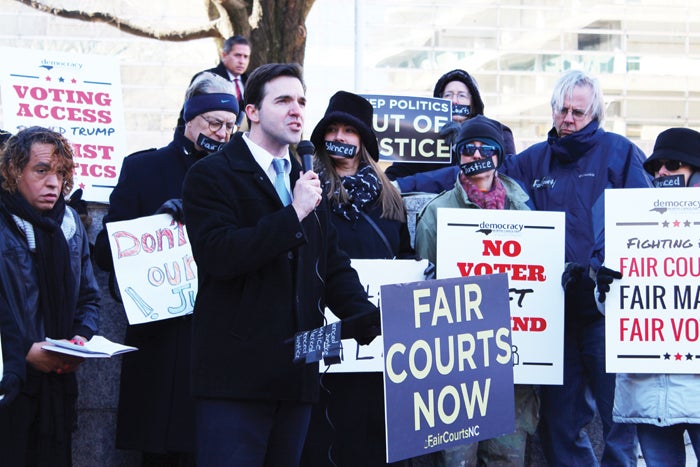Reasons to keep judicial elections
Published 11:42 am Saturday, January 20, 2018

- N.C. Sen. Jeff Jackson (D-37) addresses news conference attendees following a silent march in Charlotte, held in early January in protest of talks of judicial redistricting and changes in judgeship elections. Andie Foley/Salisbury Post
From a 2011 Washington Post column by Chris W. Bonneau, co-author of the book “In Defense of Judicial Elections.”
• There is no difference, other things being equal, in the quality of judges who emerge from elections as opposed to appointments. Law professors Stephen Choi, Mitu Gulati and Eric Posner recently found that appointed judges not only do not perform at a higher level than elected judges in terms of opinion quality and output but also that elected judges do not appear to be less independent than appointed judges. The authors were appropriately cautious in interpreting their findings, but any fair reading of their results suggests that elected judges are, at worst, equal to appointed judges in quality and independence.
• Campaign spending makes elections more competitive. As my research has shown, just as in elections more generally, the more money challengers spend trying to unseat an incumbent, the better they perform with the electorate. Campaign spending thus has positive effects in these elections. Moreover, stringent campaign finance limitations reduce the amounts a challenger can spend, thus making the election less competitive and increasing the incumbency advantage. Campaign spending is key to providing voters with a meaningful choice. …
No method is perfect. But, unlike the “merit” commission process most frequently offered as an alternative — in which judges are selected by the governor off a list formulated by political and legal elites and then retain their jobs simply by receiving a majority of “Yes” votes in an uncompetitive election — elections are at least transparent processes open to the public.

